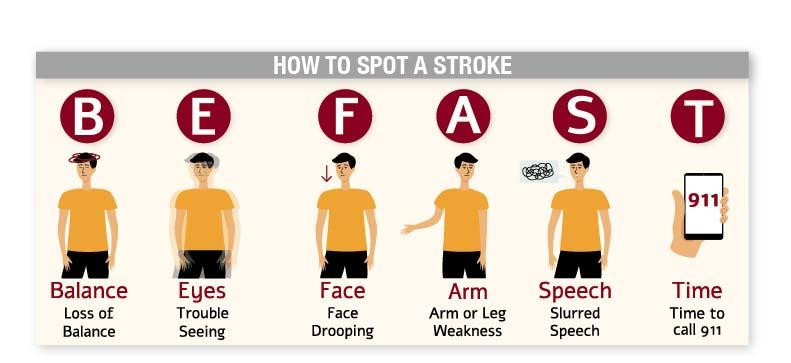
How does prostate cancer treatment affect mental health?

5 timeless habits for better health

What are the symptoms of prostate cancer?

Is your breakfast cereal healthy?

When pain signals an emergency: Symptoms you should never ignore

Does exercise give you energy?

Acupuncture for pain relief: How it works and what to expect

How to avoid jet lag: Tips for staying alert when you travel

Biofeedback therapy: How it works and how it can help relieve pain

Best vitamins and minerals for energy
Memory Archive
Articles
Fuzzy memory? Try these strategies
Simple strategies can help someone fight age-related memory slips. Tips include repeating new information by saying it out loud or writing it down a few times; associating an image with someone’s name, such as thinking of a bouquet of roses after meeting a person named Rosie; grouping information in chunks, similar to grouping digits in a phone number; and writing information out by hand (as opposed to typing), which forces the brain to process and absorb data.
Forgetfulness doesn’t always mean Alzheimer’s
Many memory lapses are part of aging and don’t signal Alzheimer’s disease. Types of forgetfulness that usually aren’t symptoms of dementia include forgetting names or details temporarily, misplacing objects but retracing steps to recover them, and occasional word retrieval problems. Signs of dementia include repeating questions and stories, getting lost on familiar routes, challenges with planning or solving problems, difficulty completing familiar tasks, new problems with words in speaking or writing, and withdrawing from social activities.
Artificial sweeteners may speed declines in memory and thinking
A 2025 study suggested that consuming larger amounts of artificial sweeteners such as aspartame and xylitol may be linked to faster declines in memory and thinking skills.
Brief brain attacks: Short symptoms, long consequences
A 2025 study finds that a first-time transient ischemic attack (TIA) can lead to the same long-term decline in thinking and memory problems as a full-blown stroke. Experts suggest cognitive testing after a TIA. People who have TIAs should take extra care to address risk factors for heart attack and stroke, such as high blood pressure and high cholesterol. Exercising regularly and staying socially active may help ward off cognitive decline.
The simple memory and attention booster you can do anywhere for free
Mindfulness might help improve attention and memory. Mindfulness is the practice of focusing on the present moment, including thoughts, feelings, and all information coming in from the senses, such as sights, sounds, and smells. Many studies have shown that mindfulness helps people improve well-being, concentrate, engage more effectively in daily activities, and pay more attention. Attention is the most crucial factor when it comes to memory; whatever someone pays attention to is what he or she remembers.
Twist, turn, tone
Dancing is a popular leisure activity. Evidence suggests dance boasts all the same benefits as other forms of consistent aerobic exercise: lowering blood pressure, building muscle and bone, increasing aerobic capacity, reducing anxiety, and improving depression symptoms. Dance can also counter loneliness and isolation and be easier to stick with than exercise that’s more repetitive. People who want to try dance can frame it as a hobby instead of exercise, take a group class, and modify dance movements to accommodate pain or limited mobility.
Short-term cognitive boost from exercise may last for many hours
In a 2024 study, researchers found that the short-term brain boosts people receive after doing moderate to vigorous exercise can last 24 hours.
How to stop stressing over minor memory lapses
Many people worry about occasional memory lapses that occur as they get older. To cope, it helps to talk to a doctor and also reduce stress by following healthy lifestyle habits, such as exercising, getting enough sleep, eating a healthy diet, and meditating. Using strategies to help retain information is also important. Examples include placing keys in a designated spot, taking medication at the same time each day, and using notebooks—not just memory—to organize and store information for fast retrieval.
Investigating memory loss
Sudden memory lapses could be natural aspects of aging or early signs of mild cognitive impairment (MCI). With MCI, memory loss is noticeable but usually does not impede the ability to carry out daily functions. A screening test from a doctor or more advanced testing (such as brain MRI or PET scans) from a neurologist can help identify potential cognitive problems so people can seek appropriate treatment.

How does prostate cancer treatment affect mental health?

5 timeless habits for better health

What are the symptoms of prostate cancer?

Is your breakfast cereal healthy?

When pain signals an emergency: Symptoms you should never ignore

Does exercise give you energy?

Acupuncture for pain relief: How it works and what to expect

How to avoid jet lag: Tips for staying alert when you travel

Biofeedback therapy: How it works and how it can help relieve pain

Best vitamins and minerals for energy
Free Healthbeat Signup
Get the latest in health news delivered to your inbox!
Sign Up











